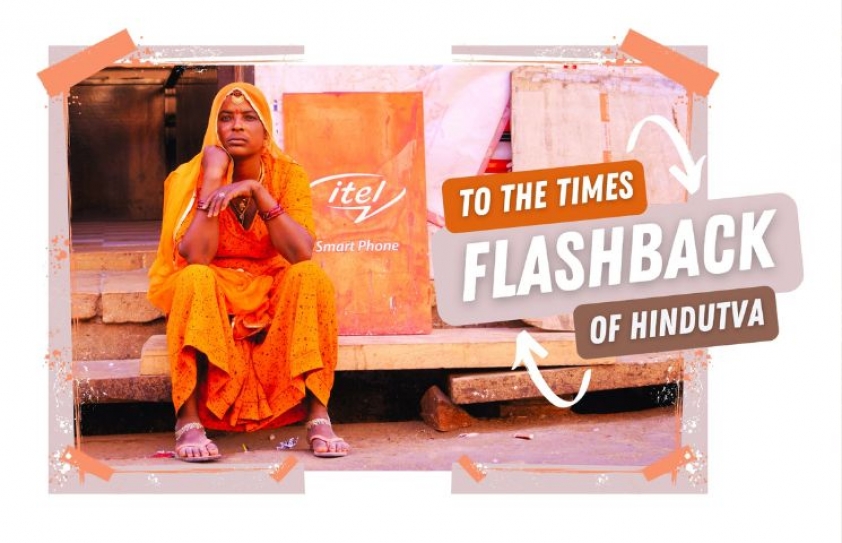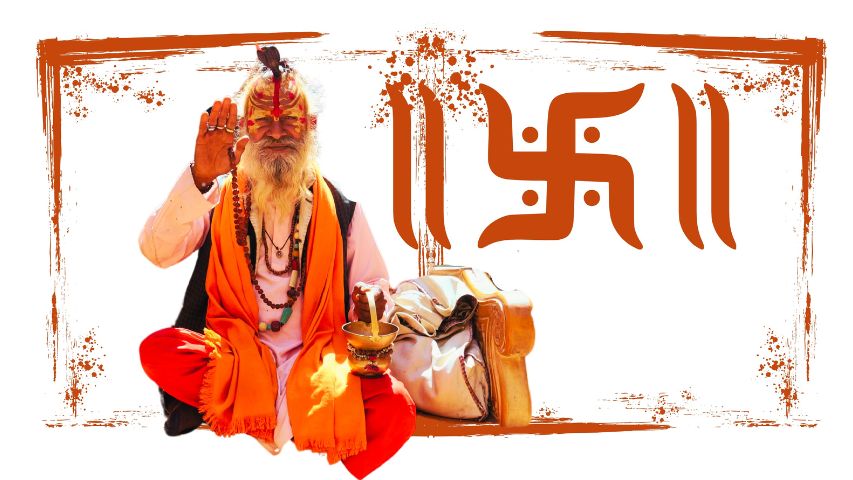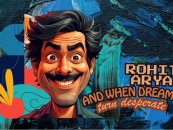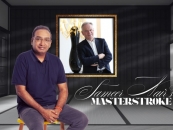
POLITICS: FLASHBACK TO THE TIMES OF HINDUTVA
by Editorial Desk January 21 2024, 12:00 am Estimated Reading Time: 5 mins, 10 secsThe influence of Hindutva politics on democratic and academic institutions in India has raised concerns about the erosion of secularism, threats to freedom of expression, communal tensions, manipulation of educational content, reports the #Newsdesk
The intertwining of Hindutva politics with democratic and academic institutions in India has raised concerns about the erosion of their independence and the principles they are meant to uphold. With its emphasis on Hindu identity, Hindutva politics has undermined the secular fabric of Indian democracy. The concept of equal treatment for all religions is a foundational principle, but the rise of Hindutva has led to the marginalization of religious minorities and compromising of the inclusive nature of the democratic setup. Academic institutions have witnessed instances of curtailed freedom of expression under the influence, and professors, researchers, and students who express dissenting views or engage in critical discussions on certain historical or socio-political issues related to Hinduism have faced backlash, creating a chilling effect on open academic discourse.
Various instances have been reported where the educational curriculum, especially in states governed by the BJP, has been modified to present a particular narrative. These changes seek to glorify Hindu history and downplay contributions from other cultural or religious communities. There have been instances where historical events and figures have been reinterpreted to align with the narrative of Hindutva politics. This includes attempts to revise the history of certain monuments, personalities, or events to emphasize their connection to Hindu culture. The appointment of individuals with affiliations to Hindutva ideology to key positions in academic and cultural institutions has led to concerns about the impartiality and autonomy of these institutions.
While criticism and debate are integral to a democratic society, concerns arise when these critiques escalate into legal action, harassment, or threats, hindering freedom of expression and dissent. Several instances of threats and violence against intellectuals, writers, and artists critical of Hindutva ideology have raised concerns about freedom of expression. The fear of reprisals has led to self-censorship and a stifling of academic and artistic freedoms.
Gauri Lankesh, a journalist known for her outspoken views against right-wing extremism, including Hindutva politics, was assassinated outside her home in Bengaluru in 2017. Her murder sparked concerns about the safety of journalists and the impact of political ideologies on freedom of the press. M.M. Kalburgi, a scholar and former vice-chancellor, was shot dead in 2015. He was known for his research on Lingayatism and his critical views on certain aspects of Hinduism.
Kanhaiya Kumar, a former president of the Jawaharlal Nehru University Students' Union, faced sedition charges in 2016. He was accused of participating in an event where anti-national slogans were allegedly raised. Umar Khalid and Anirban Bhattacharya, students at Jawaharlal Nehru University (JNU), were arrested in 2016 on charges of sedition for their alleged involvement in the same event that Kanhaiya Kumar was accused of.

Even Perumal Murugan, a Tamil author, faced threats and protests from Hindutva groups over his novel "Madhorubhagan" in 2015. The protests accused him of insulting Hindu sentiments. In response, Murugan declared on social media that he would stop writing, leading to concerns about self-censorship. Some films and filmmakers, too, have faced challenges due to perceived criticism of Hinduism or Hindutva politics. The film "Padmaavat" faced protests, and the director Sanjay Leela Bhansali received threats for allegedly distorting historical facts. Similarly, the film "PK" faced criticism for its satirical take on religious practices.
Several stand-up comedians, fact-checkers, and activists in India have also faced criticism from individuals associated with Hindutva politics. Munawar Faruqui faced legal troubles and threats for his comedy sketches that touched upon political and religious themes. In January 2021, he was arrested in Madhya Pradesh after a complaint alleged that he made derogatory remarks about Hindu deities during a performance. Kunal Kamra has faced criticism for his satirical take on political and social issues. He is known for his criticism of the government and certain political figures. Kamra's tweets and videos have led to calls for action against him.
Fact-checking websites like Alt News have been accused of bias by some who align with right-wing ideologies, leading to online disputes and attempts to discredit the organization's work. Organizations such as Boom Live and FactChecker.in have faced criticism from individuals associated with Hindutva politics. Accusations of bias and attempts to delegitimize fact-checking efforts have been observed, especially when the fact-checks are perceived to challenge or contradict right-wing narratives.
Saket Gokhale, activist and now member of the Rajya Sabha from Mamata Banerjee’s Trinamool Congress, for his social and political commentary, has faced online harassment and threat. He has been vocal on issues related to transparency, accountability, and human rights. Teesta Setalvad, known for her work in civil rights and activism, has faced legal challenges for her role in seeking justice for victims of communal violence. Her work, particularly in cases related to the Gujarat riots, has faced opposition from quarters aligned with Hindutva ideologies.
The promotion of Hindutva ideology has contributed to heightened religious polarization. There have been attempts to manipulate educational curricula to align with Hindutva narratives. This includes changes in textbooks to present a certain historical and cultural perspective that aligns with the ideology. Such interventions have raised concerns about the objectivity and integrity of academic content. The autonomy of democratic institutions, including the judiciary, has also faced challenges.
Hindutva politics has led to the rise of identity-based politics, prioritizing religious and cultural identities over broader issues like economic development and social justice. The Ayodhya dispute, centred around the Babri Masjid, saw the mobilization of Hindutva groups advocating for the construction of a Ram temple at the disputed site. The demolition of the Babri Masjid in 1992 led to communal tensions and raised questions about the rule of law, secularism, and the influence of Hindutva politics on democratic institutions.
The debates surrounding the National Register of Citizens (NRC) and Citizenship Amendment Act (CAA) have been associated with concerns about exclusion based on religious identity. The focus on the citizenship status of certain religious groups aligns with the religious agenda of Hindutva politics, potentially compromising the secular nature of the state.
The influence of Hindutva politics on democratic and academic institutions remains a subject of ongoing debate and scrutiny in the country.




-173X130.jpg)
-173X130.jpg)
-173X130.jpg)
-173X130.jpg)

-173X130.jpg)

-173X130.jpg)